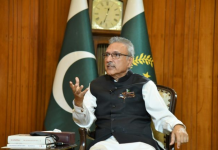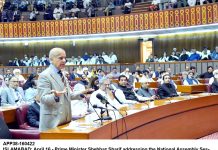مضمون کا ماخذ : MW Điện Tử
متعلقہ مضامین
-
انسانی افسانوں کا جادو: آفیشل تفریحی ایپ
-
Several arrested in anti-terror raids in Punjab after Lahore blast: ISPR
-
State Bank deputy governor admits Ishaq Dar his old friend
-
Govt, army review expenses on Zarb-e-Azb military action
-
Pakistan, Iran enjoy deep friendly ties: Ebad
-
PEMRA suspends Aamirs show for three days
-
CPEC to ease infrastructure, energy constraints in Pakistan: SBP
-
Bilawal condemns Peshawar blast
-
PEMRA recommends Rs 1m fine on Metro-1 TV
-
آٹومیٹڈ سپر رولیٹ سرکاری شرط بندی
-
آن لائن ایماندار بیٹنگ گیٹ وے: ایک قابل اعتماد پلیٹ فارم
-
آن لائن تفریح ڈیٹا بیس کی سرکاری ویب سائٹ: مکمل معلومات اور فوائد













